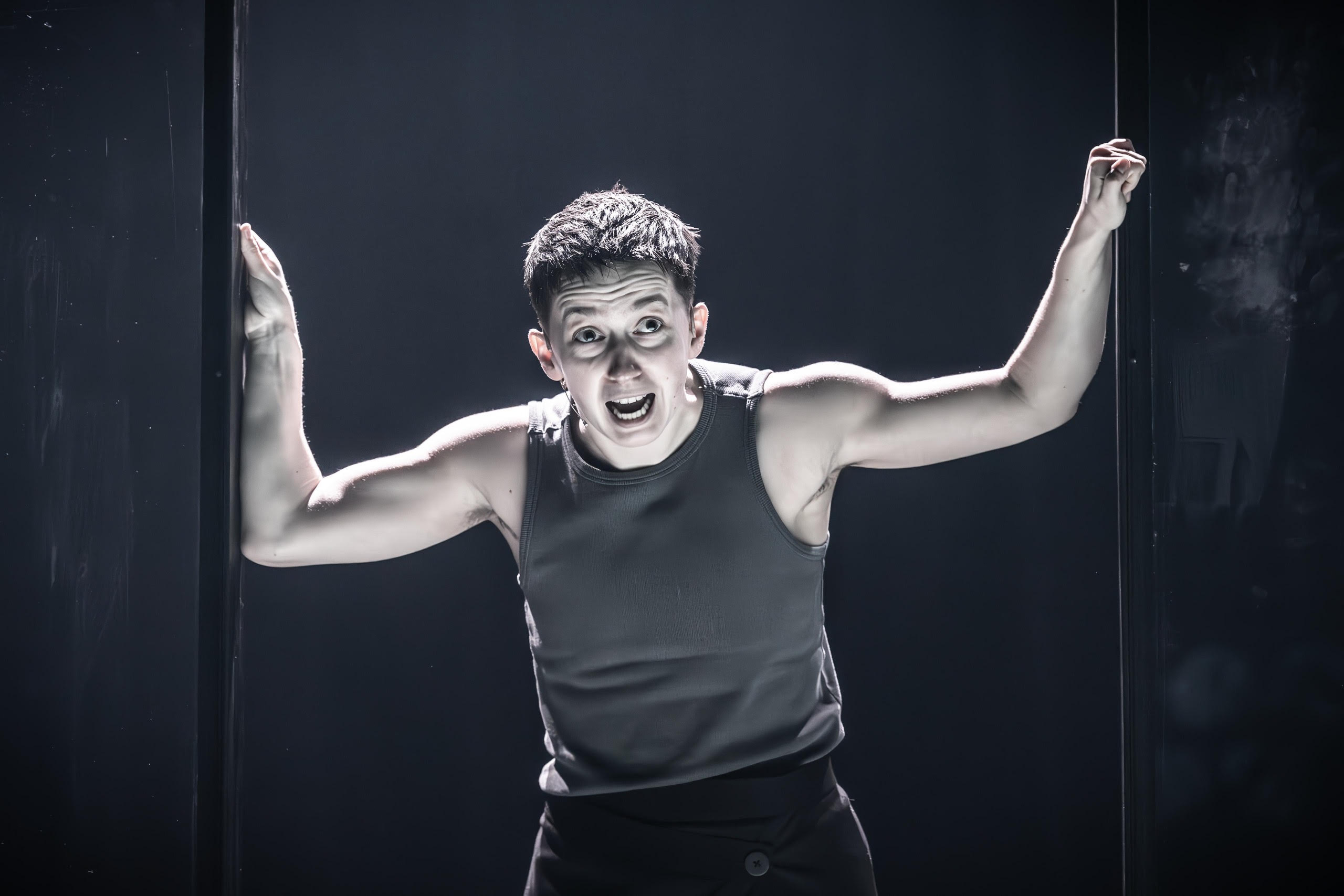Katie Redford demystifies the process of creating your own stories via the medium of audio!
Voices, sound effects and your imagination can take you anywhere. For instance, I’ve just written a play about a kitchen appliance – just a normal guy in a normal world. Apart from the fact that he’s a whisk. #andwhat
And the nominations for most annoying obstacles when creating your own work are…
- Budget
- Time
- Permission
If you’re keen to create your own work chances are you’ve encountered these factors. Producing your own audio play may be just what you’re after – but don’t be fooled into thinking it’s ‘easy’.
I made my first audio play last year. Me and my co-writer got together, wrote a piece and recorded it. It was all set on a train – how hard could it be? We’d just record two people chatting, chuck in a few train sounds and we’ll have ourselves an audio play. Radio 4 had better watch their back.
It’s safe to say Radio 4 didn’t need to do anything with their back, especially watch it. From a producing perspective, making an audio play was far more complex than I’d imagined. I’m a big fan of the world of audio and radio drama and I’m fortunate enough to have a career within the field. But being in something and making something are two very different things. If you’re interested in taking a leap of faith and trying it for yourself, here are some tips on how to make the process as smooth as you can.

Be Sure About Your Medium
Why audio? Think about why you’re choosing to tell your story through an audio play rather than any other medium. One of the great things about audio is that you can change things up quite drastically where you couldn’t on film or on stage – take for instance, changing your protagonist from a human into a tree. If you were watching EastEnders and Phil Mitchell had just casually turned into a massive tree, I don’t want to assume but I’m confident you’d be shocked, question everything about the show and wonder what the hell is going on. However, if you were to tune into Radio 4 and listen to a play about a balding man that lives in the east end of London and one day, just so happens to turn into a tree, then yes, okay, it’s not your average tale but you’d be far more sold on it coming across on the radio.
Voices, sound effects and your imagination can take you anywhere. For instance, I’ve just written a play about a kitchen appliance – just a normal guy in a normal world. Apart from the fact that he’s a whisk. #andwhat
Have a Realistic Script
One of the best things about working in radio drama is that when it comes to creating scenarios, anything is possible. Once I turned up to studio and played a caterpillar (standard Thursday). But being in a fully equipped studio with an experienced team to create the world around you, and a director who’s guiding you through your sound, is a luxury. Very different from trying to create a story through audio, alone.
Make things easier for yourself and think carefully about the script you’re going to bring to life. You may want to create a violent battle in a spacious field but think about how you can achieve that if you’re recording in your kitchen. There are many sound effects available for you to use, so that wouldn’t be a problem, but think about the atmosphere of the piece along with the quality of mic you’ve got. Is a battle scene going to feel realistic?
Work with Someone Who is Experienced with Audio
You can have the most talented team on board, but if none of them have had any audio experience, no one will know exactly what to look out for along the way. In one of the scenes we recorded, a character had to stand up and move seats on the train. A movement as small as that sounds so simple but when you’re not actually on a train, it can be difficult for that to come across.
You need to think about factors such as the distance you are to the mic, your breathing and how it changes when you move. What noises do you actually make when you stand up and sit down? Don’t overdo it and wheeze away like you’ve got a hernia but think about how you can still achieve an effect – it’s worth creating these subtle changes.
Having a director or somebody that is aware of such things is instrumental to creating a good audio play. Unfortunately, no one picked up on our ‘sitting down dilemma’ until we were editing, and we had to cut a chunk out of the story, as it didn’t make sense.
Make Your Edit Easier
Last week, I collaborated with Itch and Scratch and produced one of their audio plays for their new podcast, which they’re launching in the spring. There was something extremely rewarding about bringing new writing to life with zero budget and very limited equipment. There were various small obstacles that kept cropping up for the actors, as they do in every recording I’ve been a part of – whether that’s at the studios at Broadcasting House or in my mate’s garage. They’re extremely common but can be avoided with a few simple exercises.
1. Noisy Paper Turns
Turning a page on mic without the paper rustling sounds simple – it’s not. Try scrunching your script up into a ball, and then straightening it all back out again. The paper is less ‘flimsy’ and won’t make as much noise when it moves.
2. Nerves
Nerves do strange things to you and there’s no hiding it in your voice. Just do a few facial warm ups, blow raspberries with your lips, jump up and down, pat your cheeks and take a few deep breaths and hopefully your voice will steady itself – or see this article for more info!
3. Stumbling
Every actor I’ve worked with in radio has stumbled over their lines. The first time I did it, I thought I’d ruined the entire recording, only to realise it was as simple as pausing and just going back to the beginning of the line. Don’t curse the day you were born and flap around. Just take enough of a pause that whoever is editing it can simply cut it out and know where to start again from.
4. Listen Back in Studio
As a producer/director, don’t just think sitting in the room listening to the play will be enough. Actually listen on the headphones whilst it’s being recorded. Is it all coming across accurately?
Pay Attention to Your Acoustics and Equipment
Make sure you test the mic properly before you record. Quickly saying “1, 2, 1, 2” is not going to give you an accurate portrayal of how it’s all going to sound. Look at your piece: are there any moments when your characters move away from the mic? Raise their voice? Whisper? Sit up? Stand up? Lie down? All these things must be tested beforehand. You may have a wonderful script and equally wonderful actors to bring it to life, but without a good mic, there isn’t much point.
Along with a good mic are the acoustics. When I worked with Itch and Scratch, we were fortunate enough to gain access to a studio, but you don’t necessarily need one; you just need good acoustics, which means a room without too many hard surfaces reflecting sound, and as much cushioning from surrounding noise as possible. Also make sure that during a recording, everyone in the room (apart from whoever is saying the lines) is silent. It’s a shame when you get a great take and when you listen back to it, it’s overshadowed with someone shouting from the next room “Does anyone want a brew?” As a producer, have your ‘producer’ head on and don’t be afraid to lay a few laws down. Don’t feel bad for asking for silence. If you don’t, your edit could prove to be a nightmare.
Ask Favours
If you want to have complete creative control, by all means, edit the piece yourself. However, I asked a friend for a favour. The edit can be quite time consuming and I couldn’t juggle it alongside everything else at the time. He did a great job of it and even gave himself a little cameo (best train announcement I’ve ever heard).
Yes, absolutely everyone should be paid for what they do, but when it’s yours or a friend’s project, there’s no budget and you’re working with like-minded people who are passionate about making good work, favours are there to be asked. I have a team of friends who I turn to when I want to create work. When you find people who you trust and work well together, hold on to them, show them gratitude (or cake) and take pleasure in creating magic with them. One day, you’ll all look back and be so grateful you did so. Every actor can work, but it takes someone with real grit to create their own.
So, if you decide to have a crack at producing your own audio play, good luck! And in the meantime, if you want to hear about the life of a whisk, you know where I am.
Katie is an actress & writer originally from Nottingham. She’s a member of BBC Comedy Writersroom and is a part of the BBC Talent Hot List. She currently plays Lily Pargetter on Radio 4’s The Archers and Beth in BBC1’s Still Open All Hours. When she’s not in work, you can find her in the soft play centre in Epsom where she takes the children she sometimes nannies for, so she doesn’t have to do any actual work.



















